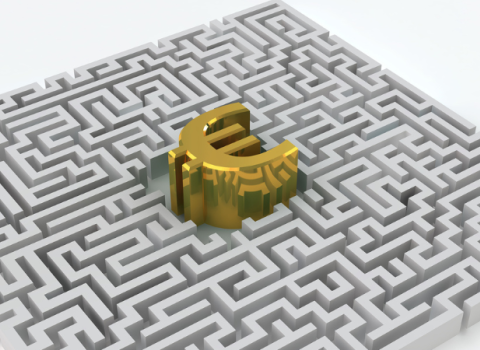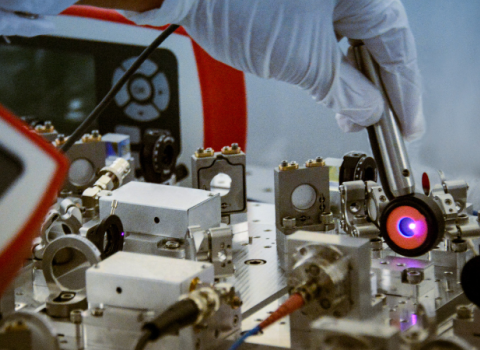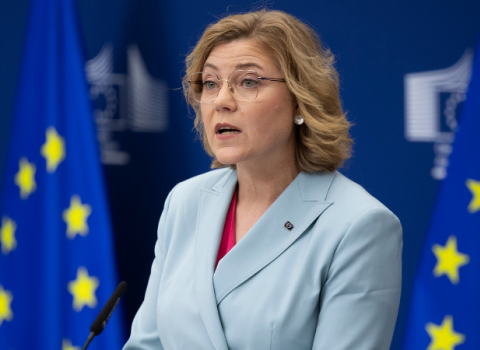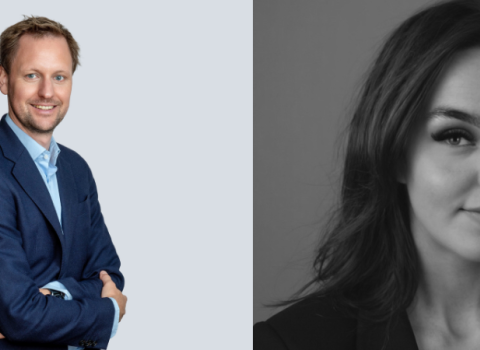Additional boost for quantum research at DESY: The German Federal Government and the European Union (EU) are funding two new quantum technology projects in which the research centre is significantly involved. The NiQ project, supported by the Federal Ministry of Education and Research (BMBF), investigates the role of noise in quantum computers, while the T-NiSQ project, funded by the EU in the QuantERA framework programme, develops, among other things, diagnostic tools for the validation of quantum components. To mark World Quantum Day this Thursday (14 April), DESY is hosting a symposium on research into quantum computing, quantum materials and quantum sensors, as well as technology transfer to applications.
“The newly acquired funding complements the strategic quantum technology initiative DESY QUANTUM in an excellent way,” emphasises Kerstin Borras, Co-Coordinator for Quantum Technology and Leading Scientist at DESY and Professor at RWTH Aachen University. “The funded projects will provide deep insights into physics and significantly accelerate the development of quantum technologies,” adds Karl Jansen, Co-Coordinator for Quantum Technologies and Head of the newly founded Center for Quantum Technology Applications CQTA at DESY's Zeuthen site, which is funded with 15 million euros by the State of Brandenburg.
In the NiQ project (Noise in Quantum algorithms), researchers from Saarland University, Freie Universität Berlin, Forschungszentrum Jülich and DESY, together with the companies Qruise and IBM, are investigating the influence of noise on calculations with quantum computers. On the one hand, the aim is to reduce noise, which can significantly impair the performance of quantum computers. On the other hand, the unavoidable noise can be specifically exploited in certain situations to achieve a result more quickly. The project, which is coordinated by Saarland University and already started in February, is scheduled for three years and is funded by the BMBF with a total of almost two million euros.
The just-approved project T-NiSQ (Tensor Networks in the Simulation of Quantum materials) aims to systematically develop quantum and tensor network algorithms for quantum computers that use quantum mechanical principles to certify and validate quantum computer devices. The studies and developments in T-NiSQ are an essential tool to better understand the dynamical and strong correlation effects in quantum matter and to use them for the design of tailored instruments. The programme, coordinated by the Italian National Institute for Nuclear Physics, is also scheduled for three years and will receive a total of almost 1.26 million euros from the EU. Besides DESY, the University of Innsbruck in Austria, the Max Planck Institute of Quantum Optics in Garching, the University of the Basque Country in Spain and the Jožef Stefan Institute in Slovenia are also involved. The project will start in May.
The DESY QUANTUM strategic initiative bundles research on quantum technologies at DESY in three core areas: Methods and applications in quantum computing, investigation, understanding and development of quantum materials, and development and application of quantum sensors for experiments with unprecedented accuracy. DESY QUANTUM builds on the unique combination of strengths at DESY, such as the high-resolution analytical X-ray sources that allow a detailed view into the quantum world, the competences in novel computing methods and the expertise in detector development. The innovation ecosystem at the Hamburg-Bahrenfeld campus and the CQTA support the targeted transfer of the findings into application.
This article was first published on 14 April by DESY.





 A unique international forum for public research organisations and companies to connect their external engagement with strategic interests around their R&D system.
A unique international forum for public research organisations and companies to connect their external engagement with strategic interests around their R&D system.